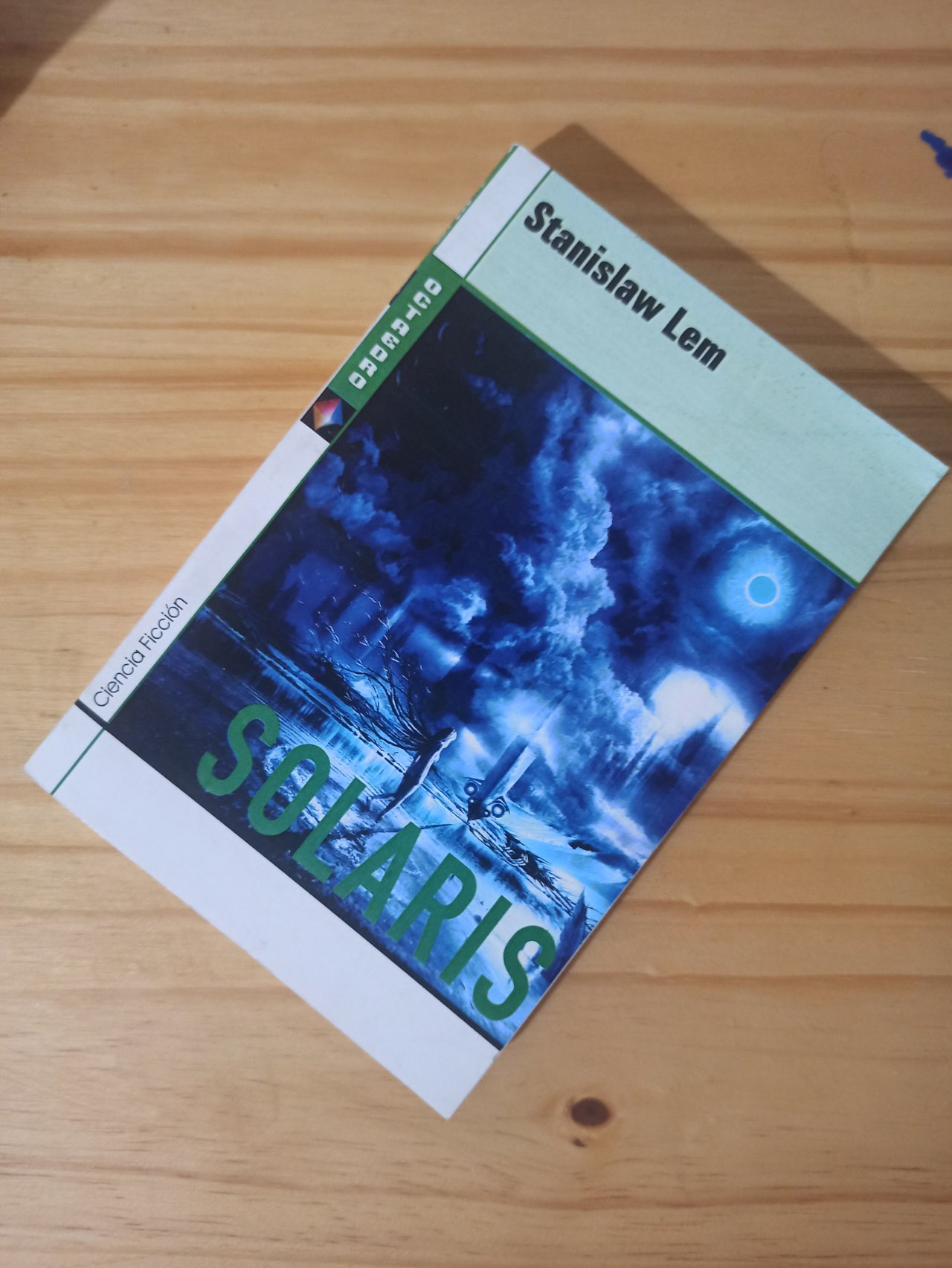Solaris, Stanisław Lem

The year 2021 was declared the year of Stanisław Lem in Poland, so I decided to celebrate this occasion by reading one of my favorite books of this author.
Stanisław Lem is an outstanding Science Fiction writer who has achieved such mastery in writing in various styles that for years literary critics have suspected that his name hides an entire literary collective writing various novels. In Krakow, I had an entire library with his books, over forty works, which includes the amusing "Fairy Tales of Robots" ("Bajki Robotów") to the philosophical-futuristic "Scientific Conference" ("Kongres Futurologiczny"). When I migrated to South America, I didn't take my books with me, so my opportunities to get my favorite reading was very limited, but luckily in one of the bookstores, I found perhaps the most popular work by Lem - "Solaris".
You may have read this book. It is quite likely because it has been translated into several dozen languages and is available on all continents (except Antarctica, of course, unless one of the Polish scientists stationed at the Arctowski base took it with him on a journey). You could also see the Hollywood movie of the same name with George Clooney in the lead role (read a book though, it's million times better than the movie)
If I count correctly, I have read Lem's most famous novel for the third time (the first two times in Polish, now in Spanish) and each time it makes a deeper and deeper impression on me. Everything in Lem's work is dazzling, everything matters and is in its place. Here the author achieved the fullness of his literacy perfection. Lem creates a fictional treatise on the limits of human cognition and our place in the universe. The idea for the story is original and rich in content, and the execution is sophisticated. The main theme of Science Fiction, contact with another civilization, another form of rational life, is treated very seriously by Lem. The question of contact finds a pessimistic answer, which is one of the main theses of Lem's writing - contact may be impossible because life in the cosmos probably does not look like humanoid UFO creatures well known from Roswell. It may have the strangest forms and use unknown senses to explore the world.

In Solaris, a form of consciousness other than human is the living ocean of moving plasma. It turns out to be so different from ours that all attempts to reach a contact turn out to be impossible. The point of departure in the novel is this organic ocean, which for many years has been a mystery to researchers from Earth. In a station on the planet Solaris, three scientists x-ray it. And that's when the "guests" appear - the most hidden obsessions of the scientists in a human form. These creatures sent by the ocean are convinced that they are humans and seem to be human beings, but if you try to get rid of them, they reveal their true nature: the killed ones revive, separated from the "host" they can tear metal walls apart with their bare hands. At this point, a new researcher, psychologist Kelvin, the first-person narrator and the main character of the novel arrives at the station.
The beginning of "Solaris" is extremely disturbing and completely unusual for Lem. Reminds more psychological horrors than a typical Science Fiction novel. Arriving at the station, Kelvin finds himself in a state of chaos, which will have a strong impact on him, especially since he too will soon see his guest. Kelvin himself begins to doubt his senses: are the station and the planet sometimes a dream, a delusion, a hallucination?
The possibility of various interpretations provided by Lem's work only stimulates the reader's curiosity. In the chapter "Monsters" we will find beautiful, vivid descriptions of the mysterious creativity of the ocean, which from its plasma expels amazing structures. All these artificial creations arouse the admiration of observers, although the purpose of their creation and the fact that after some time they self-annihilate remain unknown.
Whatever else I might add, there is no doubt that Solaris is a classic. That's a reason to read this book, which every Science Fiction fan should do. I guarantee you that once you will grab the book in your hand, you won't fall asleep until you will end it. Beware of your dreams and the creatures you may see in them after the lecture.
Thank you for reading,
@papi.mati
Invitation goes to:
@geos90
@willeusz
@isaacellias
10% of the payment goes to @steem-bru

